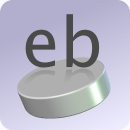Difference between pages "Talk:Funtoo Filesystem Guide, Part 1" and "Package:Ruby"
(Difference between pages)
Jump to navigation
Jump to search
Threesixes (talk | contribs) (comments about gfs2 & ocfs2) |
Threesixes (talk | contribs) m (almost ironed all the bugs out, possible another commit and it will be ready for production) |
||
| Line 1: | Line 1: | ||
{{Ebuild | |||
|Summary=Centralized Ruby extension management system | |||
|CatPkg=dev-ruby/rubygems | |||
|Maintainer= | |||
|Homepage=http://rubyforge.org/projects/rubygems/ | |||
}} | |||
{{fancywarning|this is a rough draft, and may need revision.}} | |||
Rubygems is a package management system to extend the ruby language. | |||
Gems are packaged wonky in portage so this page will explain how to work with rubygems rather than fight it. Arch wiki outlines a similar method. | |||
https://wiki.archlinux.org/index.php/Ruby#RubyGems | |||
Emerge ruby & rubygems: | |||
<console>###i##emerge ruby rubygems</console> | |||
Remove bunk gems: | |||
<console>###i##emerge -C dev-ruby/rake dev-ruby/racc dev-ruby/json dev-ruby/rdoc</console> | |||
Flush bunk gems bad specs: | |||
<console>###i##mv /usr/local/lib64/ruby/gems/2.1.0/specifications/ /usr/local/lib64/ruby/gems/2.1.0/specifications.backup</console> | |||
Fetch gems via rubygems: | |||
<console>###i##gem install rdoc json rake racc</console> | |||
<console>rubygems-update</console> | |||
update gem system: | |||
<console>###i##update_rubygems | |||
###i##gem update --system | |||
###i##gem pristine --all | |||
</console> | |||
Now you're ready to use gem to manage gems. The reason this came about is that bundler can't be run with out conflicts. | |||
==ruby on rails== | |||
<console>###i##gem install rails | |||
###i##rails new testproject | |||
###i##cd testproject | |||
###i##bundle install</console> | |||
{{EbuildFooter}} | |||
Revision as of 06:28, August 18, 2014

Ruby
Tip
We welcome improvements to this page. To edit this page, Create a Funtoo account. Then log in and then click here to edit this page. See our editing guidelines to becoming a wiki-editing pro.
Warning
this is a rough draft, and may need revision.
Rubygems is a package management system to extend the ruby language.
Gems are packaged wonky in portage so this page will explain how to work with rubygems rather than fight it. Arch wiki outlines a similar method.
https://wiki.archlinux.org/index.php/Ruby#RubyGems
Emerge ruby & rubygems:
root #emerge ruby rubygems
Remove bunk gems:
root #emerge -C dev-ruby/rake dev-ruby/racc dev-ruby/json dev-ruby/rdoc
Flush bunk gems bad specs:
root #mv /usr/local/lib64/ruby/gems/2.1.0/specifications/ /usr/local/lib64/ruby/gems/2.1.0/specifications.backup
Fetch gems via rubygems:
root #gem install rdoc json rake racc
rubygems-update
update gem system:
root #update_rubygems root #gem update --system root #gem pristine --all
Now you're ready to use gem to manage gems. The reason this came about is that bundler can't be run with out conflicts.
ruby on rails
root #gem install rails root #rails new testproject root #cd testproject root #bundle install